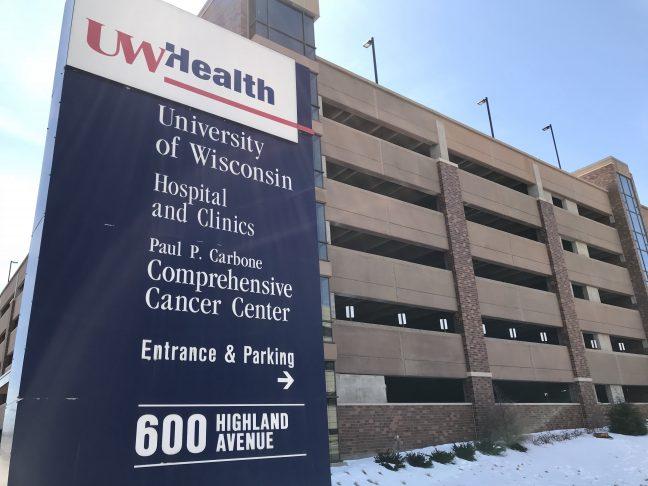Marginalized communities are often excluded from medical research and denied accessible healthcare, resulting in health disparities across the United States — but assistant professor at the University of Wisconsin Shaneda Warren Andersen made a point to include these groups in a recent study investigating Type 2 diabetes and colorectal cancer.
The study, co-authored by UW cancer researcher Tom Lawler and UW PhD candidate Zoe Walts, found Black Americans and lower socioeconomic populations with Type 2 diabetes had increased risk factors for colorectal cancer.
“Because most of that [cancer] research takes place in white samples, we wanted to see if this association also existed in the southern community cohort, which is a majority black and low-income population,” Walts said.
Walts said the causation of Type 2 diabetes on colorectal cancer is still debated, and previous studies only explored this interaction in white patients. The researchers reviewed the existing literature on the diseases, then used the Southern Community Cohort Study to analyze medical data from Black Americans and individuals with low socioeconomic backgrounds.
The study also found screenings help prevent the likelihood of colorectal cancer in these groups, Walts said. According to the study, participants who received preventative screening, even if they had Type 2 diabetes, had a lower likelihood of developing colorectal cancer than those who didn’t receive preventative screenings.
“Preventative screening for colorectal cancer can help to mitigate some of the increased risk that those with diabetes might experience,” Walts said. “So, that in itself actually is a good reason that we should be focused on making sure screening is available to all people.”
Outreach specialist for the UW Cancer Health Disparities Initiative Joshua Wright educates underserved communities about cancer and cancer prevention. According to Wright, cancer disparities are caused by social health determinants, which are generated by a person’s lifestyle, including their access to healthy food, physical activity or exposure to pollution. Unfortunately, social determinants frequently originate from or are influenced by discrimination, Wright said.
“We are breaking free from the legacy of discrimination — it’s taking a really long time because it was very much built into the foundations of our country,” Wright said.
Cancer is usually age-related, so social determinants play a role in how cancer develops over time and how it may eventually manifest, Wright said.
These health disparities in cancer have also accounted for higher mortality rates in Black Americans compared to white Americans with pancreatic cancer. In addition to high mortality rates, Black patients were less likely than white patients to receive the necessary treatment or surgery for pancreatic cancer, according to a study conducted by UW assistant professor Dr. Noelle LoConte.
LoConte said the aggressive nature of pancreatic cancer helps to illuminate the disparity between Black patients and white patients when receiving adequate treatment, but this disparity exists in other cancers as well.
“The reason this is happening all boils down to racism,” LoConte said. “There is no biologic reason that a Black patient should have a worse outcome for pancreatic cancer than a white patient.”
Both Walts and LoConte agree that increased access to cancer screenings would help close the gap of accessible treatment between underprivileged communities and privileged communities.
Wright said increased cancer screenings in Madison would include more accessible testing hours to accommodate schedules for all working people and lead to broader access to preventative treatments.
According to LoConte and Wright, increasing diversity among health professionals can also help reduce inequalities in cancer treatment. It can be easier to talk about serious health issues when a patient sees a health professional who looks like a family member, Wright said.
Increasing diversity in research is also essential, Walts said. Health professionals and researchers are still learning about diseases like cancer in underrepresented populations, making it important to study medical events in these communities to achieve more accurate and equitable research, Walts said.
“It’s important that we do good work [research] and we try to make sure that we answer these questions as best we can so that it can benefit the people that it needs to benefit,” Walts said.
Wright said current and future healthcare workers need to practice communicating cancer treatments and prevention in accessible terms, as patients may be unfamiliar with sciences like anatomy or chemistry.
Fear of cancer causes many people to avoid screenings or seeking out preventative measures, so when health professionals practice empathy and accessible education on preventative care for cancer, it can help people with those fears, Wright said.
“It’s a very scary thing [cancer] to look at because there is so much that is unknown,” Wright said.
To alleviate these sentiments, LoConte said future health professionals must eliminate racial and cultural biases while working with cancer patients from marginalized communities to reduce disparities in cancer treatment and heal communities through medicine, research and social support.


